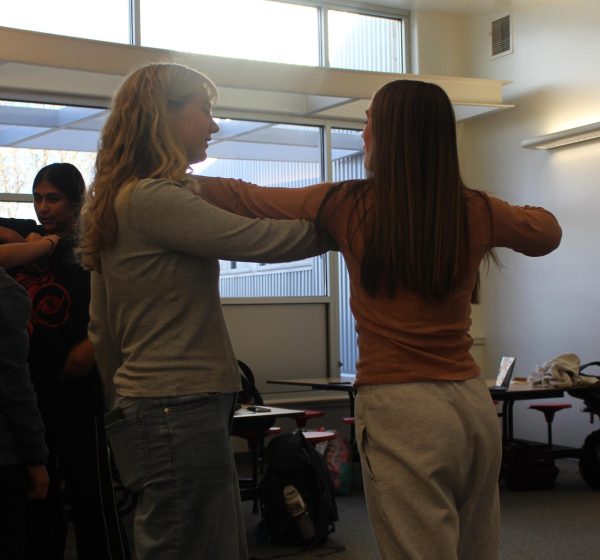What makes music, music
I have been playing piano for about eight years now and if I have learned anything from this time, it is that music is therapeutic and emotional. However, my knowledge of why or how music makes you feel emotion was limited, and mostly a matter of “well it’s just the way it is”. After watching this TED Talk, which discusses the evolution between music and time, I decided that I would dive deeper into what makes music emotional.
Reading the article “How do we evoke emotion with music” helped answer some of the questions I was eager to learn the answer to. I learned that when you listen to music, different and complex parts of your brain essentially “light up” and emotion is therefore evoked. Your brain releases dopamine and endorphins which not only help regulate your well-being but help regulate emotion. This article also stressed that the placement of certain chords in music can change the mood or emotion that you feel. Certain tones or notes can portray sensitivity and others portray anger and grief. If a song uses the technique of throwing minor chords in a major song to add tension, it was on purpose. Composers and musicians use certain techniques to manipulate emotion, which is why certain songs make you want to cry and others make you want to dance.
Not only does tone affect the emotions that someone can feel, but rhythm and dynamics are huge factors. Generally speaking, when a song is fast, it seems more upbeat and can often evoke a happier emotion. Similarly, a song that is slow can make you feel sad. Dynamics also contribute to a lot of the feelings that you feel when listening to music. When was the last time that you heard a happy song that was quiet and soft with very loud sound, or the last time that you heard a sad song being belted or played with rigor?
A song is like a code—a code that with the proper mix of tone, dynamic, and rhythm creates a feeling within you. However, often the technicality of a song can only go so far and the musician has to take the emotion the rest of the way there. If someone sat there playing something technically perfectly but was expressionless, you might understand the meaning of the music, but the real emotion often comes from the way it is played. It is much more enjoyable to see someone feeling the music and putting their whole heart into the art of music. This can often be why live performances or live concerts make you feel so much more.
Modern day medicine often relies on these facts to help those with certain conditions through the use of music therapy. Musical therapy, according to this article, helps regulate endorphins, immunoglobulin A, and cortisol. Endorphins are hormones that regulate certain physiological functions in the body. Endorphins can make you feel happy, but they can also help fight the feeling of pain, which through the use of musical therapy could be very beneficial for some patients. Immunoglobulin A is a cell that helps attack viruses. According to several studies, after going through music therapy or just listening to a lot of music, more of these cells can be found. This means that the immune system is stronger and that the body will be better about fighting off infections and viruses. Cortisol is a stress hormone that, through the use of music, can be reduced, making you a less stressed person. Musical therapy also has other benefits like reduced blood pressure and a more relaxed heart rate.
Music therapy often helps those with Alzheimer’s, dementia, depression, anxiety, and many more. One of the main successes in musical therapy can be seen in those with memory loss. Through the use of music and sound, people who have a hard time remembering people or their past can regain some of those memories. Musical therapists usually play music from their client’s younger days or music from the time that they are trying to remember to evoke that emotion and trigger memories in their brain. The importance of music in these people’s lives is immense, as it helps them unlock memories that could have been locked away forever.
Appreciating the art of music is something that most people think is boring and pointless; however, it holds a lot of scientific value. The effects of music on the emotions and the correlation these have to health is something that more people should know about.
Your donation will support the student journalists of Fossil Ridge High School. Your contribution will allow us to purchase equipment and cover our annual website hosting costs.

Maddie Booton is 16 years old and is currently a Junior at Fossil Ridge Highschool. This is her 3rd year taking Journalism, she writes for the Art beat here at Fossil and also manages the Etched in Stone website. Maddie is also an older sister who is 10 and owns two cute dogs, named Lola who is 10 and...













